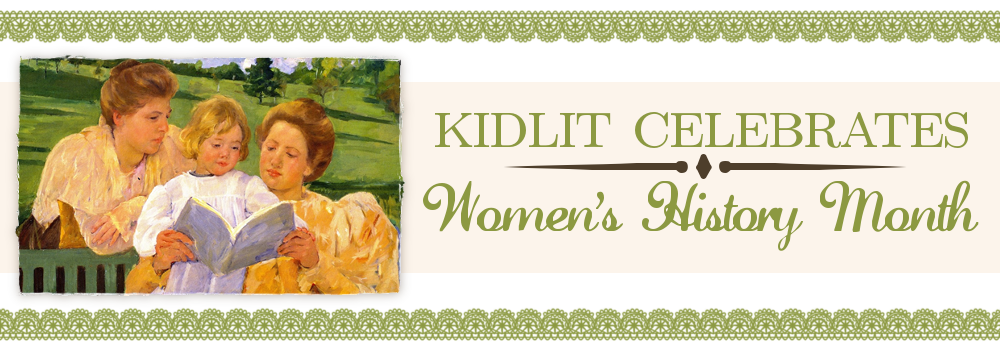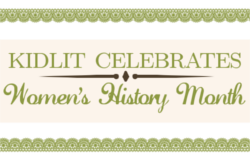March 26 - Today's post contributed by Burleigh Mutén
Miss Emily – Our Laughing
Goddess of Plenty
©2014 Burleigh Mutén
Emily Dickinson loved children.
This is one of the first facts
I tell the
five-year-olds I teach
when we study Dickinson.
“Not only did Emily Dickinson
grow up in Amherst, just like you,”
I tell them, “She
loved nature,
just like you, and
she liked to write about it.
She wrote many poems about bees
and flowers, the wind,
birds, clouds at
sunset,
the color of the hills at sunrise.
A lot of people all over the world
know about Emily Dickinson
and her poems,” I say,
“but most people don’t know
that she loved children.”
“Did she have any children?” someone asks.
I explain about the lucky children
who lived next door –-
her niece and nephews
and the children of the neighborhood
who loved to play in her yard
with hope that she might add
a whimsical contribution to their fun.
Sometimes a sweet treat.
I ask the children in my class
if they know a grown-up who
knows how to talk to children,
which is my way of saying,
Do you know anyone
who really respects
you,
someone who is
genuinely interested
in you and your
thoughts,
someone who knows how
to join your play as
an equal
for those precious
moments
when you pretend
together?
Their hands shoot up eagerly.
Sometimes someone
names a special aunt.
The perfect response.
One of Dickinson’s young neighbors,
MacGregor Jenkins, grew up and wrote
for Harpers and The Atlantic Monthly.
He also wrote a memoir about
his young life on Main Street, Amherst called
EMILY DICKINSON, FRIEND AND NEIGHBOR
in which he describes the poet as
“our laughing goddess
of plenty.”
“It is impossible to imagine a personality
that would appeal to children
more than Miss Emily’s,”
wrote Jenkins. “One moment her eyes
were dancing with fun, filling
our hearts with a very new
and very wonderful feeling.
She was a joyous person.”
 |
| ©Matt Phelan |
The Teacher and Writer Within Me
instantly leapt into a lively conversation.
“A mischievous,
playful Miss Emily
is the way
to introduce young children
to Dickinson,” said the Teacher.
“You can show youngsters,”
said the Writer,
“that Emily Dickinson didn’t
totally sequester herself
in her home. She, in fact,
never stopped interacting
with the children she loved.”
It’s well documented that Dickinson
wrote many notes to the children.
We also know from her letters and poems
that she enjoyed watching the circus
parade past her home.
“The plot develops!” cried the Writer Within.
I started the story, writing in prose.
“But you love verse novels,” insisted the Writer.
“And so do young readers,” said the Teacher.
“You’re a poet,” whispered Miss Emily
as I sat at the keyboard. “Enjoy yourself!
Have a heyday with lineation!
Play with alliteration!”
“Ooh,” said the Writer and the Teacher together.
So I did!
I played with all aspects
of writing free verse
just as I’m doing right now.
MISS EMILY generously offered me
the chance to go “public like a frog”
with the secret I’d kept
since I was a teen: I am poet.
I was walking ‘round the reservoir
near my home one day when the first lines
of the book came into my head.
 |
| ©Matt Phelan |
Van Amburgh & Company’s Great Golden Menagerie
and Frost’s Roman
Circus and Royal Coliseum
came to Amherst in June 1877.
The posters announced 175 horses,
56 wagons, five of the world’s champion riders,
bareback somersaulting equestrians,
the largest elephant in the world,
and a two-horned rhinoceros.
 |
| ©Matt Phelan |
It was fun researching
and writing MISS EMILY,
but it was not easy writing
a note to the children
which fit the story
but in actuality were my words --
not Dickinson’s.
I held my breath after submitting
the manuscript to a Dickinson scholar
and sighed when she returned it
with compliments.
 |
As a poet Emily Dickinson was true
to her authentic voice
as a writer and person.
She was not fond of convention.
In any realm of her life.
As an educator,
I believe it’s vital for a child
to explore and find
her own writer’s voice.
.
Thanks to Miss Emily,
I claimed my own voice as a poet.
May MISS EMILY’s young readers
do the same!
Burleigh Mutén is the author of five children’s
books. She is a kindergarten teacher in Amherst, MA and a member of the Emily
Dickinson International Society. She has led writing workshops for older
children throughout New England, including workshops focused on Dickinson and
her work in which young authors actually write in the houses of the Emily
Dickinson Museum.













Thanks so much for your illuminating post and helping to dispel our stereotypes of Emily Dickinson!
ReplyDeleteI'd love to share this with my friends, thanks for sharing! Burnaby Drywall Contractor
ReplyDeletehttps://saglamproxy.com
ReplyDeletemetin2 proxy
proxy satın al
knight online proxy
mobil proxy satın al
0KBP